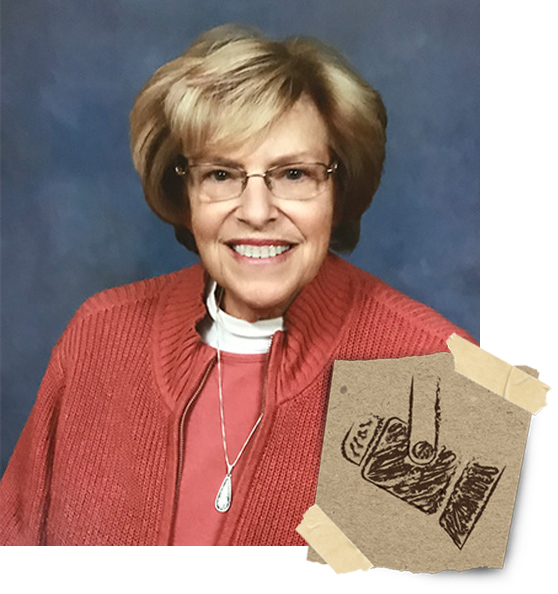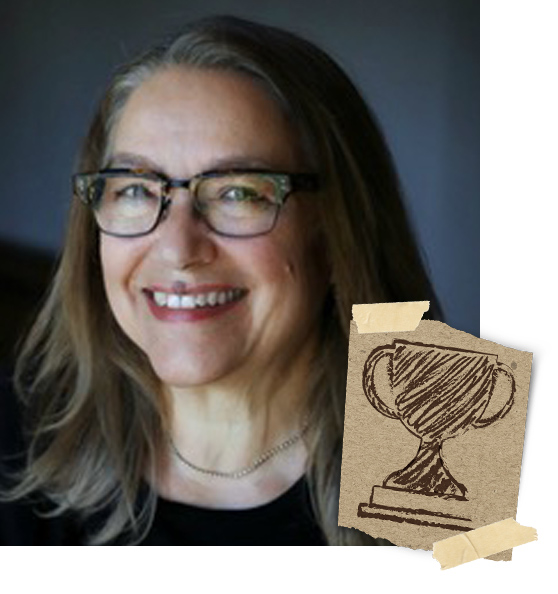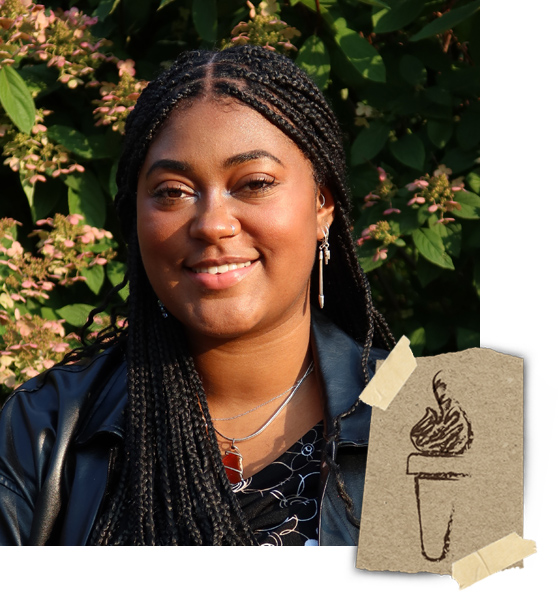Diversity Spotlight: Dr. Barbara Lowrey
March 14, 2024 - Emily Jodway
 Dr. Barbara Lowrey’s wealth of experiences and adventures has spanned several decades, and has seen her living and working in the political epicenter of the country, to South America, the Middle East, and right here at home in East Lansing. In addition to being the first-ever woman to graduate with a PhD in economics from Michigan State, Lowrey had an illustrious 31-year career working for the Federal Reserve and has spent time teaching all over the world. These are just a few of the amazing accomplishments that make her a perfect Diversity Spotlight for Women’s History Month.
Dr. Barbara Lowrey’s wealth of experiences and adventures has spanned several decades, and has seen her living and working in the political epicenter of the country, to South America, the Middle East, and right here at home in East Lansing. In addition to being the first-ever woman to graduate with a PhD in economics from Michigan State, Lowrey had an illustrious 31-year career working for the Federal Reserve and has spent time teaching all over the world. These are just a few of the amazing accomplishments that make her a perfect Diversity Spotlight for Women’s History Month.
Lowrey began her journey in MSU’s own backyard, with her father teaching for the university and her mother at nearby East Lansing High School. One of her first major life experiences was getting to live and attend high school in Brazil while her father helped found a school of business in São Paulo as part of a Michigan State initiative. This afforded her the opportunity to continue her education at Pembroke, the women’s college associated with Brown University. Entering college, Lowrey planned to major in physics, but soon found herself both homesick and fostering an interest in political science, both of which prompted her to move back to East Lansing and attend Michigan State.
“Michigan State has a large political science department and was considered one of the best in the country, so I thought, ‘this is silly to be attending an Ivy League school when Michigan State offers such a wonderful program,” she explained.
While studying political science, her experiences living abroad pushed her toward an additional interest in regional studies and international politics. She also found that politics and money, or economics, often go hand in hand. “I realized that politicians should understand how government budgets work, how the economy works, when they’re making decisions about taxes and how they’re going to spend the revenue. I didn’t plan to go into economics, but it turned out it was actually easier to continue on and earn a masters in economics rather than in political science.”
Thus, after the completion of her undergraduate degree, Lowrey packed up and spent a short stint in Madison earning her masters at Wisconsin. At the time, the Cuban Missile Crisis was looming in many people’s minds, Lowrey's included. So she finished her degree in just one year and set out to earn more real-life experience.
Lowrey spent more time overseas after teaching for a small college in Chicago, when an opportunity opened up to educate members of the US military while they were stationed in Turkey. But she quickly found that being a professor of economics was difficult without a doctoral degree in the subject. While in Turkey, MSU’s then-dean of the business school came out to visit, and talked with Lowrey about pursuing a PhD; Lowrey was apprehensive, but began to warm up to the idea and returned home with a plan to earn her doctorate at Michigan State. The process still brought her some nerves, with the idea of writing a dissertation feeling especially daunting.
“I came back to Michigan State and studied under Max Kreinin [late professor of economics, 1957-2014]; he was a beloved figure in the department and I really liked him. I met with him on my first day and he and I decided on a dissertation topic. It meant that I had the support of a major professor from the very beginning, and until you work on a dissertation, you don’t realize how important having the support of a major professor is.”
While she remains very humble about the fact, it is noteworthy to mention that Lowrey was the first-ever woman to graduate with a PhD in economics from Michigan State in 1970. “I was proud to be the first, more than that I was just so determined to get the degree,” she explained. “I befriended other women who were working on their degrees, and there were more women who graduated from the program shortly after.”
With Kreinin’s assistance, and a lot of personal persistence, Lowrey landed a job at the Federal Reserve Board (Fed) in Washington, D.C, where she remained for 31 years. She recalls her husband’s description of working in the Fed as "Being in a graduate seminar with a bunch of other economists just having a good time." The Fed was quickly expanding and Barbara found herself surrounded by colleagues with similar interests and education paths. She began in the international finance division and got to travel to places like Paris to represent the Board. While working in Paris, she followed exchange markets and evaluated monetary policy for English-speaking European countries, Canada, and the United States.
One group she did not see herself surrounded by, however, was other women. When she was asked to transition into Assistant Secretary of the Board, overseeing the Fed’s many regulations and statutes, it was 1980, and the Fed was just opening up to the idea of promoting more women into senior positions. At the time, there were only two other women at the Board who served as “officers,” and they were rehired retirees.
“I’m a product of diversity,” Lowrey said. “And I think the field of economics has awakened more throughout my career. It’s very concerned about diversity and equity now. I think that people in the discipline are working hard to make economics relevant, and it’s such a broad field that you should be able to find something in it that fits your interests.”
Since her time, several organizations like the American Economics Association, have made strides to implement new diversity, equity and inclusion initiatives, as well as anti-discrimination and anti-harassment programs, to make the profession more accessible for all.
Lowrey describes feeling ‘blessed’ to have experienced a trend of mostly forward progress in the realm of women’s equality throughout her lifetime, allowing her to flourish in her career and personal life. She emphasizes the wealth of different perspectives and skills that women can bring to the table, both in the field of economics and beyond.
“Women have a lot to offer- I mean, we’re half of the population,” she said. “It’s tragic not to use the insights and skills that women have. Men and women overlap in many ways, but there’s also differences. The reason to acknowledge those differences is that it adds to a richness and may also help you avoid mistakes in policy.”
Read more:

Diversity Champion
Faculty/Staff
Dr. Lisa Fine
A professor of history, Dr. Lisa Fine has spent over 30 years at Michigan State working to advance opportunities for all students across campus, but has particularly made immeasurable strides in making the university a safer and more inclusive place for gender minorities. She co-founded the Center for Gender in Global Context and revived the Women’s Studies major, both of which brought to the forefront gender and women’s issues through a global lens.

Diversity Torch
Student
Taylor Hughes-Barrow
Taylor Hughes-Barrow is a senior majoring in human development and family studies. In addition to being an undergraduate representative on the Dean’s Advisory Committee on Diversity and Inclusion, she focuses much of her research on finding ways to make campus a more accessible and inclusive environment for minoritized student groups. She is also a part of the Women’s Leadership Institute Student Cohort and is passionate about affording women of color the space to speak their minds and support one another.

Diversity Matters
We strive to cultivate an inclusive and welcoming college environment that celebrates a diversity of people, ideas, and perspectives.

